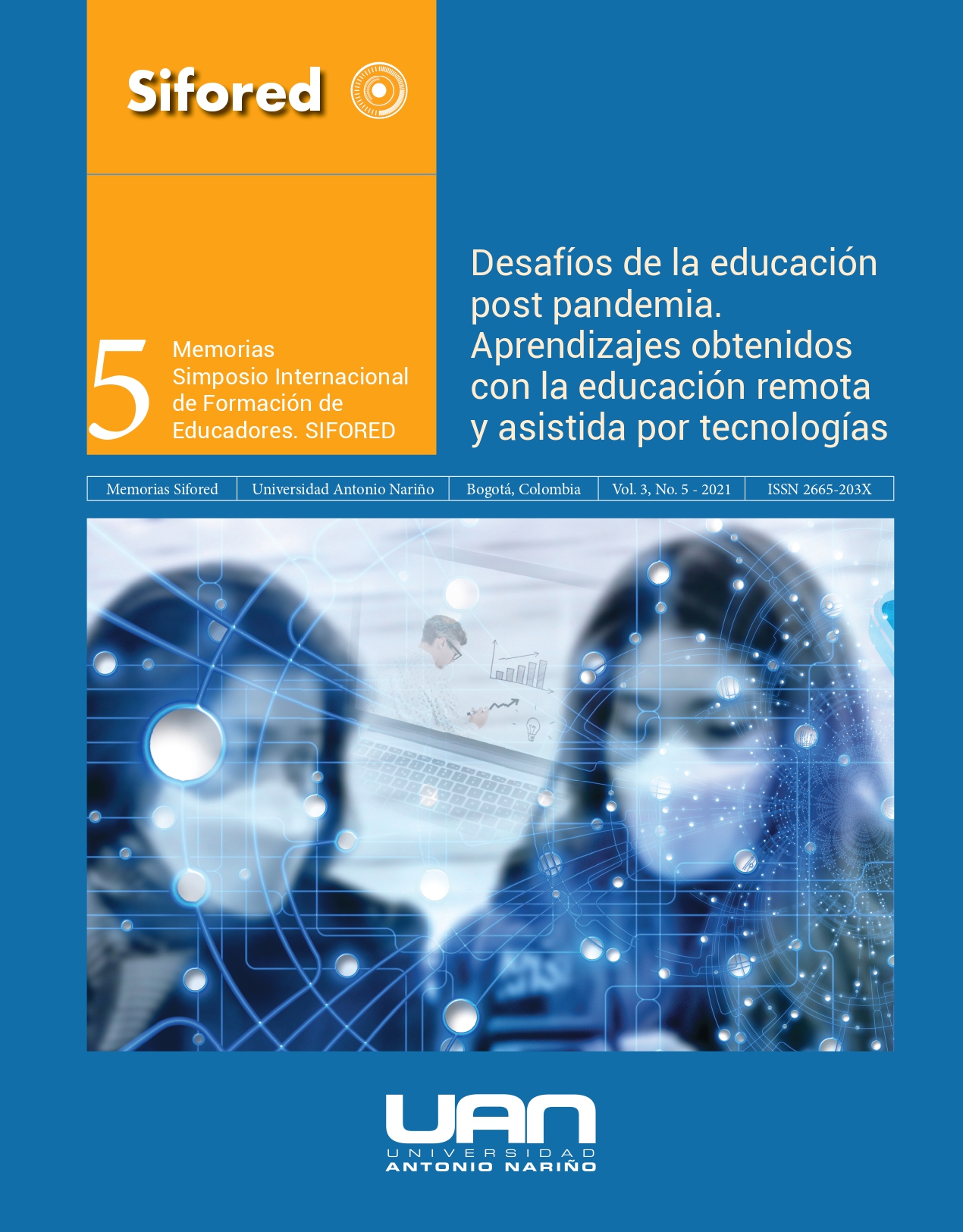Una experiencia desde el aula de matemáticas
Resumo
El objetivo de este estudio fue fortalecer el pensamiento crítico de estudiantes de grado once de una Institución Educativa de Colombia, en el municipio de Madrid-Cundinamarca, a través del enfoque de la matemática crítica. La investigación fue cualitativa en el marco de la investigación acción. Para la ejecución de la investigación se llevaron a cabo cuatro fases: identificación, comprensión de la problemática, reacción y reflexión. Los participantes se interesaron en estudiar la situación generada por la pandemia de la Covid 19, específicamente lo referido a la vacunación en su entorno cercano. Se pudo evidenciar que al involucrar en el aula de matemáticas problemáticas o situaciones con las que el estudiante se sienta identificado se fortalece el pensamiento crítico ya que los participantes se interesaron en una situación, profundizaron en su comprensión y reaccionaron frente a esta, específicamente para confrontar creencias falsas sobre la vacunación.
Downloads
Referências
The objective of this study was to strengthen the critical thinking of eleventh grade students of an educational institution in Colombia, in the municipality of Madrid-Cundinamarca, through the approach of critical mathematics. The research was qualitative within the framework of action research. Four phases were carried out for the execution of the research: identification, understanding of the problem, reaction and reflection. The participants were interested in studying the situation generated by the Covid 19 pandemic, specifically with regard to vaccination in their immediate environment. It was possible to show that by involving in the mathematics classroom problems or situations with which the student feels identified, critical thinking is strengthened, since the participants became interested in a situation, deepened their understanding and reacted to it, specifically to confront false beliefs about vaccination.
Skovsmose, O. (1999). Hacia una filosofía de la educación matemática crítica. Bogotá: una empresa docente Skovsmose, O., & Valero, P. (2012). Rompimiento de la neutralidad política: el compromiso crítico de la educación matemática con la democracia. Randall E. Groth (2021). The Relevance of Statistical Knowledge for Teaching to Health Care Professionals: Reflections on a COVID-19 Press Briefing, Journal of Statistics and Data Science Education, DOI: 10.1080/10691898.2020.1851160
Torres, R. H.-S. (2018). Medotología de la investigación: Las ruras cuantitativa, cualitativva y mista. México: Mc Graw Hill.
Downloads
Publicado
-
Resumo222
-
PDF (Español)134
Como Citar
Edição
Seção
Licença

Este trabalho está licenciado sob uma licença Creative Commons Attribution-NonCommercial-ShareAlike 4.0 International License.


 Portal de Ciencia Abierta
Portal de Ciencia Abierta